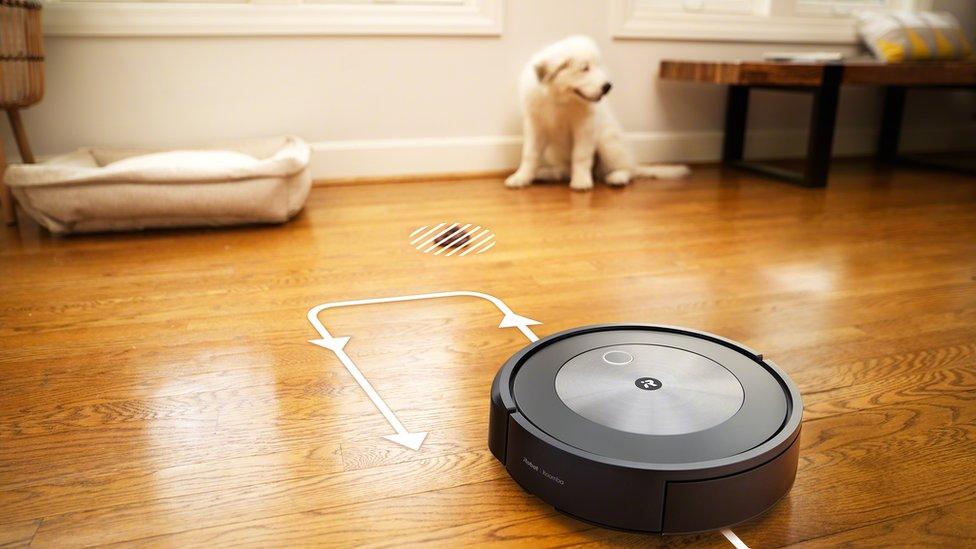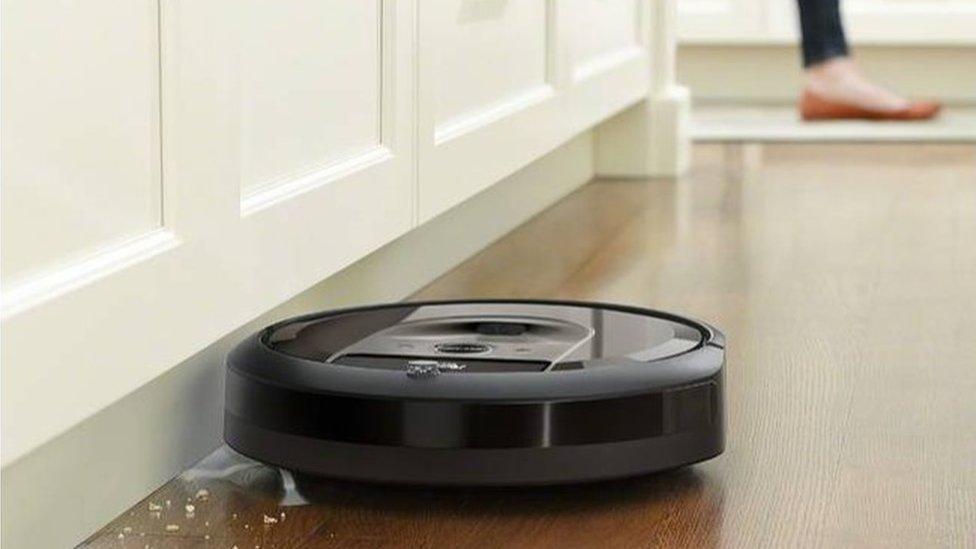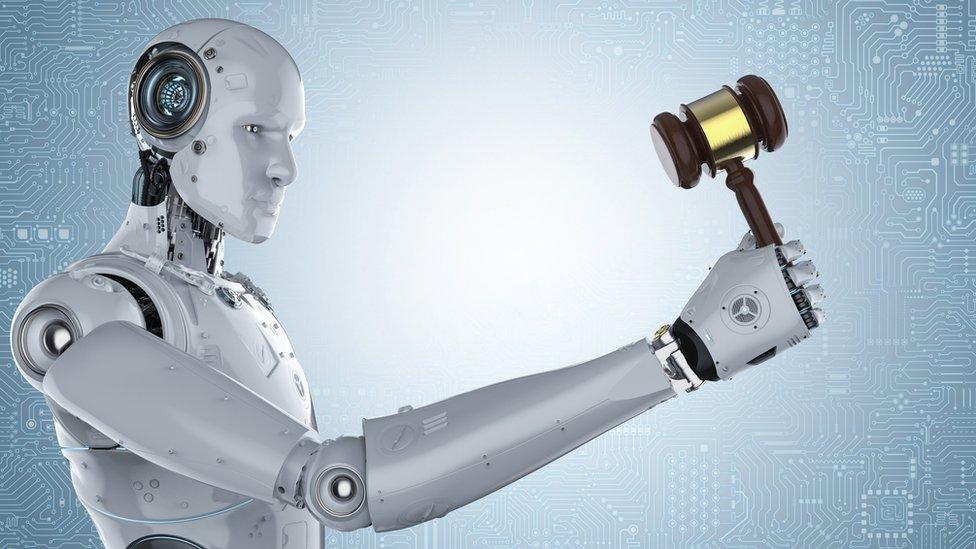Robot vacuum cleaner trained to dodge pet faeces
- Published

A messy accident avoided, as visualised by iRobot
The latest model of the Roomba robot vacuum cleaner recognises and avoids cables and "pet waste", the manufacturer says.
Owners have previously documented the devices running into and then mindlessly spreading pet faeces as they "clean".
"Quite honestly, we see this a lot," a company representative told the Guardian, in 2016 , external.
Rival devices already claim to avoid pet mess.
A Wired reviewer was "fairly confident, external" a new machine from Roborock, for example, would avoid excrement.
iRobot, which makes the new Roomba, promised it would replace any of the new machines, the Roomba j7+, that failed to avoid "solid" pet waste.
The algorithms controlling the robot had been trained on "hundreds of thousands of images of real, fake, and simulated dog and cat waste", a representative told CNet, external.
BBC News has asked the manufacturer if its guarantee will apply to less-solid pet waste.
In response an iRobot spokesperson said the promise, "does not apply to the non-avoidance of materials other than solid cat or dog waste".
Hedgehog corpses
Avoiding obstacles in a complex environment is a challenge facing many different types of domestic robot.
And Dr Sophie Lund Rasmussen, of the Wildlife Conservation Research Unit, at the University of Oxford, is working with robot-lawn-mower manufacturers to minimise their risk to hedgehogs.
She told BBC News her research, using hedgehog corpses collected from local rescue centres, showed "the sensor technologies used in the 18 different models tested were not able to detect the hedgehogs at a distance" - though some had stopped or change direction when in contact with the corpses.
But the challenges facing lawn-mowers and vacuum cleaners were not directly comparable "as they serve different purposes and may not use the exact same technology".
- Published1 March 2021

- Published15 August 2021
